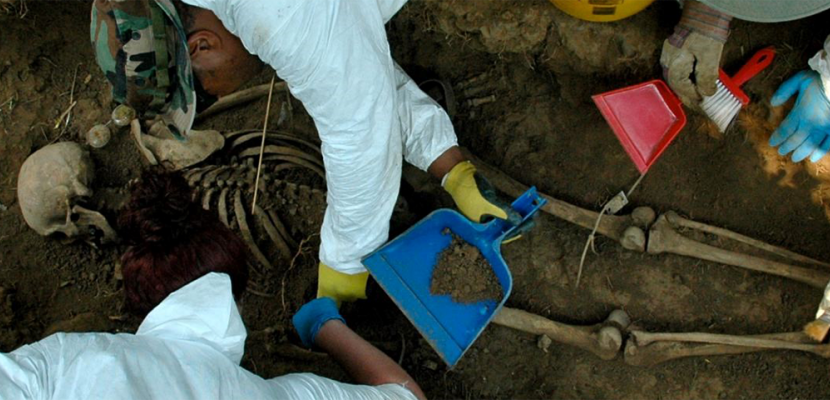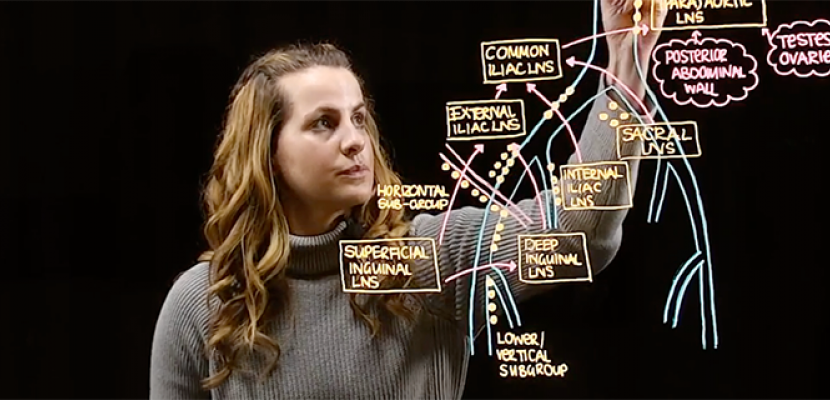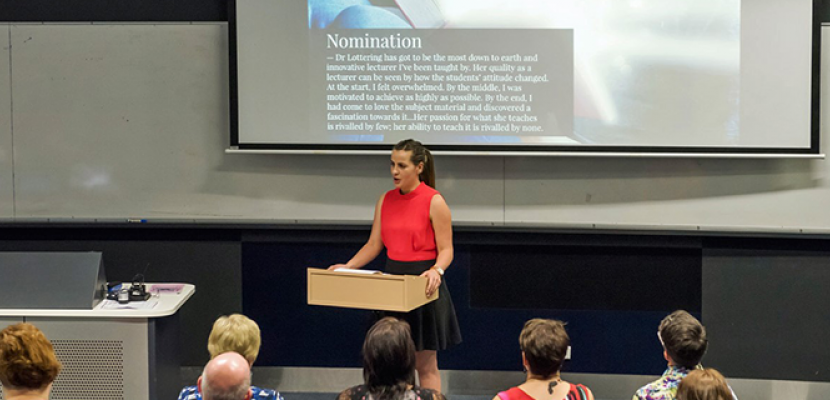
From the frontlines of COVID-19 care to space exploration, climate change research and so much more, there are brilliant women making huge strides in the areas of science, technology, engineering and maths (STEM) around the world. So, we’re zeroing in on a few of them; in particular the wonderful women on our own doorstep here at Bond University.
Dr Nicolene (Nikki) Lottering is an internationally-recognised researcher and Assistant Professor in Medicine at Bond’s Faculty of Health Sciences & Medicine. Nikki has received national teaching awards for her approaches to teaching anatomy to the next generation of healthcare professionals and applied scientists. She is at the forefront of developing new methods to help identify children in forensic settings, and runs a popular educational YouTube channel.
We chatted with Dr Lottering about all things Women in STEM.
Can you tell us a bit about your journey to getting involved in STEM?
As cliché as it may sound, I believe most children are born scientists. We have a tendency as kids to wonder, explore, poke, be curious, ask questions, imagine – we are exploring our environments through experimentation. Growing up, I was a creative and imaginative child, but my passion for maths and science was ultimately fostered during my schooling years at A.B. Paterson College here on the Gold Coast.
In Year 12, I was fortunate enough to receive the Principal’s Scholarship, which then translated into a scholarship to study a Bachelor of Forensic Science at Bond University in 2009. Throughout my undergraduate degree, I aimed to establish a solid foundation in the sciences that would then allow me to enter into postgraduate Medicine. However, in the final year of my Bachelor of Forensic Science, my career trajectory was thrown a curveball – I studied anthropology and forensic osteology subjects run by Professor Walter Wood, a renowned anatomist and forensic anthropologist who worked identifying skeletal remains for the military for many years.
This sparked the flame of curiosity! The activities we got to do in these subjects – excavating animal bones from clandestine graves, learning to analyse DNA, interpreting fingerprints at mock crime scenes – fascinated me. Forensic anthropology was a field I was unfamiliar with, a career pathway that didn’t feature in QTAC brochures, but throughout the expert knowledge shared during my degree this became my area of interest, and ultimately, my profession.
Since then, I’ve completed my honours and doctorate degrees and continued to explore human identification with an emphasis on the paediatric skeleton. These ventures, and the opportunities that subsequently arose, such as publications, internships and international work experience, ultimately led to my passion for educating the next generation and performing real-world research.

What is your current role, and how did you get there?
I’m currently appointed as an Assistant Professor in Medicine here at Bond, in the Faculty of Health Sciences & Medicine’s science and scholarship domain. I’m a research-active academic, teaching applied anatomy and medical imaging within the pre-clinical years of the Medical Program, and maintaining a research program in paediatrics. Coming back to Bond after many years was an opportunity to come full circle and return to the Gold Coast after spending time at universities in the United States, Adelaide and Melbourne.
What’s your favourite part of working in a STEM field?
My favourite part is that no day is the same! Often, I explain my job as being akin to a 1000-piece puzzle – composed of lots of unique challenges to solve, but ultimately, a masterpiece that takes a lifetime to construct.
The most surprising theme that has emerged from my time in STEM is my passion for education and all things technology. I feel extremely privileged to work alongside some of the brightest, most hardworking and passionate young minds – the future doctors, healthcare providers and scientists of tomorrow. I love using new technologies to improve how our students learn anatomy and radiology, and ultimately, to make learning fun! I’m a big believer that if we can make learning fun, engaging and relevant, students will remember complex content more effectively and be able to apply this knowledge to clinical environments.

What has your experience learning from and collaborating with other women in STEM been like?
Navigating the academic environment can be quite challenging, especially for women, as traditionally it has carried a sense of competitiveness and a strict hierarchy. Thankfully, I’ve been lucky to find a tribe of female friends and colleagues both at and beyond Bond, and we’ve together created a culture of success through social connection, the sharing of knowledge and by lifting each other up. If I look around at my mentors, research collaborators and support team, they all have one thing in common – they’re all women! I’ve experienced first-hand how women in the STEM community empower each other all the way from our leadership team in the Faculty of Health Sciences & Medicine to my teaching colleagues on the floor.
I recently heard a great quote that I think summarises the culture amongst the incredible women at Bond – “I have never had to unscrew another woman’s lightbulb in order to shine.”
How do you think we can inspire more women and girls to get involved in STEM?
I think that for a change in mindset to occur, we need to start as early as possible – in preschool or early primary school – and continue throughout all phases of education. It’s never too early to start STEM learning, and children are in fact, born ‘STEM stars’ as they subconsciously perform observational and risk-taking activities. Many education initiatives are targeted at young adults in high school, which in my opinion is too late, as girls will have already decided whether to continue with STEM by Year 9.
As a woman in STEM, I think passion has been the key to becoming influential in my field, so I’d also encourage women to take on mentorship roles and share the cool, important things they’re doing via outreach activities, school talks and social media. It’s also important not to just showcase the high flyers and award-winners, but the women in underrepresented fields to send a realistic and powerful message. It’s important that girls have relatable professionals to look up to as they begin their STEM journeys!

Do you have any advice for young girls who might be wary to express an interest in STEM subjects or career paths?
STEM is not limited to what you learn in the classroom – it’s all around us, and is such an integral part of our world. I encourage you to think about your passions and to reach out to others to learn more. There are plenty of women in STEM fields active on social media platforms like Instagram, TikTok and YouTube – get involved to connect with and learn from them!
I’d also advise girls to not be afraid of trying new things or being momentarily uncomfortable when putting themselves out there. An opportunity might arise that you think you’re not capable of, but chances are, you are! Give it a go anyway and keep exploring until you find that hobby, subject or topic that ignites that spark within you.
Why do you think it is important for women to be represented in science?
My answer to this one is pretty simple. As Meghan Craig said, “You can tell [girls] to dream, or you can show them how.” How can we encourage girls to get involved in science – becoming applied scientists, engineers, mathematicians, doctors, nurses and more – if they can’t see them, hear from them or relate to them?
Dr Nikki Lottering shares her own unconventional journey in STEM on her social media channels – she’s active on Instagram and Twitter. Learn more about human anatomy by subscribing to her YouTube channel, Musculoskeletal Anatomy with Dr Nikki.